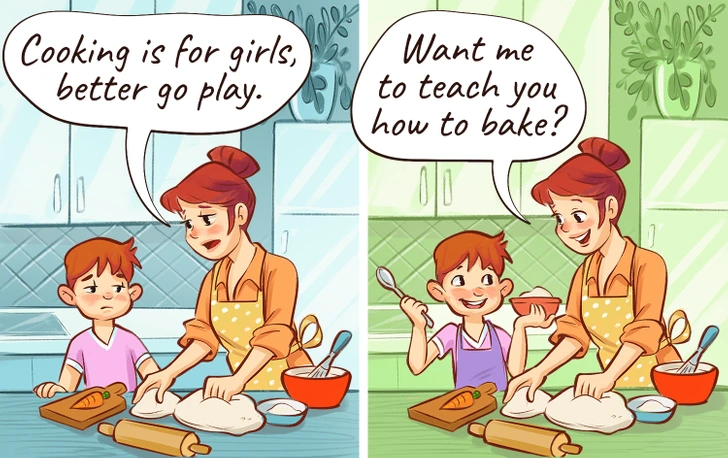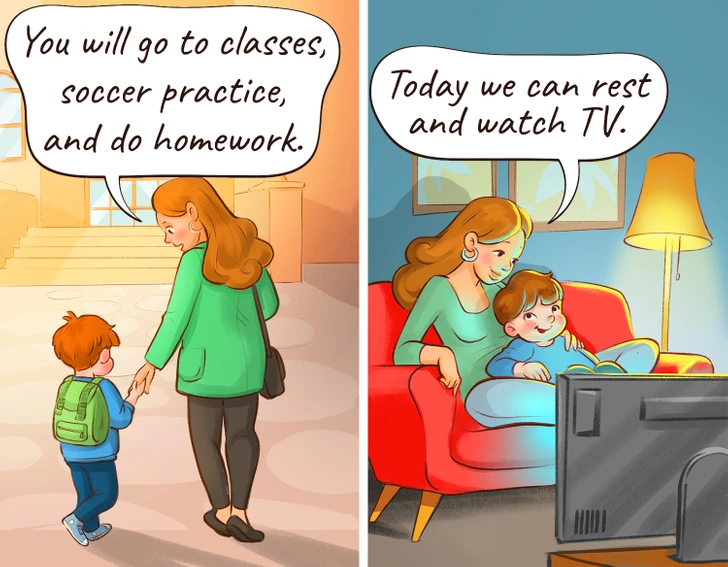As parents, we all want our kids to succeed and chase their dreams. However, certain parenting habits can unintentionally hinder their growth and confidence. It’s important to recognize these mistakes and make changes to provide an environment where children can thrive. Let’s dive into the most common parenting mistakes that could be holding your kids back and how to avoid them.
1. Comparing Them to Others

It’s easy to compare your child to others, but this can create unnecessary stress and anxiety for them. Every child is unique and will develop at their own pace. Constant comparisons can make them feel like they’re not good enough.
Instead, focus on celebrating their achievements and encouraging them to stay consistent in working toward their goals. Patience and support go a long way in building their confidence.
2. Judging Their Interests

Sometimes, kids enjoy activities that don’t fit traditional expectations, and that’s perfectly okay. Your son might love cooking, and your daughter might have a passion for cars. Judging these interests can discourage them from pursuing what makes them happy.
Rather than labeling activities as “for boys” or “for girls,” support their passions and encourage them to explore what they truly love. It’s about helping them grow into well-rounded individuals.
3. Not Being Flexible
If your child hasn’t yet discovered their interests or dream career, don’t worry. Some kids need more time to figure out what excites them. The key is to stay engaged and provide opportunities for them to explore.

Incorporate fun activities and games into their daily routines. These experiences help them build skills and discover what they’re passionate about.
4. Criticizing Their Imagination

Many kids dream big—whether it’s becoming a wizard, a princess, or an artist. Dismissing or mocking their dreams can damage their self-esteem and creativity.
Instead, nurture their imagination. For example, if your child dreams of being an artist, give them paints and canvases to explore their creativity. Who knows? One day, their work could end up in a gallery.
5. Ignoring Their Emotions

Teaching kids to suppress their feelings might seem like a way to make them tough, but it can have the opposite effect. When children are not allowed to express their emotions, they may struggle with understanding and processing them.
Acknowledge their feelings and teach them how to manage emotions in a healthy way. This will help them build emotional intelligence, which is crucial for navigating life’s challenges.
6. Not Listening to Their Needs

When kids show interest in a class, activity, or hobby, it’s often their way of expressing what brings them joy. Ignoring or dismissing these interests can make them feel unheard.
Pay attention to their cues and provide the support they need to nurture their talents. Listening to their needs shows that you value their choices and believe in their potential.
7. Overloading Their Schedules

As parents, it’s tempting to fill your child’s day with activities to ensure they’re productive. However, an overloaded schedule can leave them feeling stressed and exhausted.
Make sure they have enough free time to relax and recharge. Rest is just as important as structured activities for their growth and overall well-being.
8. Not Letting Them Try New Things

Children grow by exploring new interests and stepping outside their comfort zones. If they seem tired of a particular activity, it’s okay to let them experiment with something else.
Encourage them to join new clubs, try different sports, or explore creative hobbies. Being around others who share similar interests can inspire and motivate them.
9. Belittling Their Talents

Even if a child’s talent seems minor or unrelated to traditional success, it’s important to encourage them. Dismissing their abilities can make them feel like their efforts don’t matter.
Celebrate their achievements, no matter how small, and help them see the value in what they love. This positive reinforcement boosts their confidence and encourages them to keep improving.
10. Giving Them Everything They Want

While it’s natural to want to make your kids happy, giving them everything they ask for can hinder their ability to develop patience and self-control. Overindulgence may prevent them from appreciating the value of hard work.
Teach them the importance of earning rewards and working toward their goals. This helps them understand that success comes through effort, not instant gratification.
Conclusion
Parenting isn’t about being perfect—it’s about being present and supportive. By avoiding these common mistakes, you can create an environment where your child feels encouraged to dream big and work toward their goals. Celebrate their individuality, support their interests, and give them the tools to grow into confident, capable individuals. With your guidance, they can achieve anything they set their minds to.


